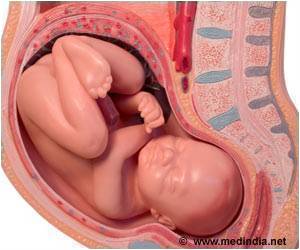Boy babies are much more likely to experience potentially life-threatening outcomes at birth than girls, revealed a new research led by the University of Adelaide.

‘The sex of the baby has a direct association with pregnancy outcomes, with baby boys being more likely to experience life-threatening outcomes at birth than girls.’





The research team - involving the University of Adelaide's Robinson Research Institute, the University of Groningen in The Netherlands, and the Pregnancy Outcome Unit of SA Health - evaluated the relationship between the babies' sex and adverse outcomes, such as pre-term birth, pregnancy-induced high blood pressure disorders, and gestational diabetes mellitus. The results will be published online in the journal PLOS ONE.
"The major conclusion of our study is that the evidence is there and it is very clear: the sex of the baby has a direct association with pregnancy outcomes," says research leader and senior author Professor Claire Roberts, from the University's Robinson Research Institute.
The study found that:
- Boys are more likely to be born spontaneously pre-term. Boys show a 27% higher risk for a pre-term birth between 20-24 weeks' gestation, 24% higher risk for a pre-term birth between 30-33 weeks, and 17% higher risk for pre-term birth between 34-36 weeks.
- Mothers carrying boys are 4% more likely to suffer gestational diabetes.
- Mothers carrying boys are 7.5% more likely to suffer pre-eclampsia at term.
- However, pregnant women carrying a girl have a 22% higher risk for early onset pre-eclampsia requiring a pre-term delivery.
Advertisement
Professor Roberts and her colleagues have previously published on sex differences in the expression of 142 genes in the placenta from normal pregnancies.
This research has been funded by the National Health and Medical Research Council (NHMRC).
Source-Newswise















